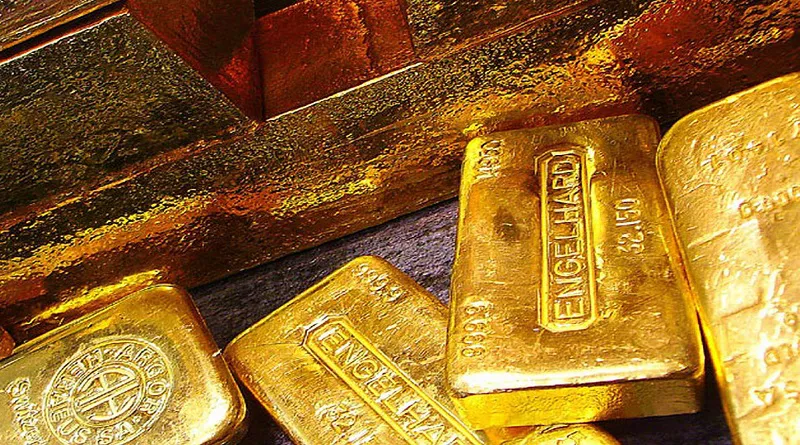Gold, often referred to as the “safe-haven” asset, is influenced by a myriad of economic indicators and events. Understanding these fundamentals is crucial for traders seeking success in the gold futures market. In this article, we will explore the key economic indicators and events that impact gold prices, shedding light on the intricate relationship between these factors and the dynamics of gold futures trading.
I. Economic Indicators: Gauging the Health of the Economy
Several economic indicators play a pivotal role in influencing gold prices. One of the most significant indicators is the Gross Domestic Product (GDP). A robust GDP suggests a healthy economy, potentially leading to increased investor confidence in riskier assets and a decrease in demand for safe-haven assets like gold. Conversely, a sluggish or contracting GDP may prompt investors to seek refuge in gold, driving up its prices.
II. Inflation Rates: Gold as a Hedge against Inflation
Inflation rates have a direct impact on the purchasing power of currency. Gold is often viewed as a hedge against inflation, as its intrinsic value tends to remain relatively stable compared to fiat currencies. When inflation is on the rise, investors may turn to gold as a means of preserving their wealth. Traders in the gold futures market closely monitor inflation indicators to anticipate shifts in demand for the precious metal.
III. Interest Rates: The Opportunity Cost of Holding Gold
Central bank policies, particularly changes in interest rates, can significantly influence gold prices. Gold doesn’t provide interest or dividends, so when interest rates are low, the opportunity cost of holding gold decreases, making it more attractive to investors. Conversely, higher interest rates may divert investor funds toward interest-bearing assets, leading to a decline in gold prices. Traders closely watch central bank announcements and interest rate decisions for signals on the direction of gold prices.
IV. Geopolitical Events: Unpredictable Catalysts for Gold Movements
Geopolitical events, such as political instability, wars, or trade tensions, can serve as unpredictable catalysts for movements in the gold market. Gold is often considered a safe-haven asset during times of geopolitical uncertainty, as investors seek refuge in assets perceived as less risky. Traders in the gold futures market must stay abreast of global events and their potential impact on market sentiment to make informed decisions.
V. Central Bank Reserves: Shifting Dynamics in Gold Demand
The gold holdings of central banks can influence the overall supply and demand dynamics of the precious metal. When central banks increase their gold reserves, it signals confidence in gold as a store of value, potentially boosting investor sentiment. Conversely, a decrease in central bank gold holdings may lead to concerns about the stability of the gold market. Traders monitor central bank activities to gauge shifts in the broader market sentiment.
VI. FAQs on Gold Futures Fundamentals
Q1: Can economic indicators alone predict gold price movements?
A1: While economic indicators provide valuable insights, gold prices are influenced by a combination of factors. It’s essential to consider geopolitical events, market sentiment, and other variables for a comprehensive analysis.
Q2: How does the U.S. dollar impact gold prices?
A2: Gold and the U.S. dollar often have an inverse relationship. When the dollar strengthens, gold prices may decline, and vice versa. This relationship is due to the fact that gold is priced in U.S. dollars on global markets.
Q3: Are there specific geopolitical events that consistently impact gold prices?
A3: Geopolitical events vary in their impact on gold prices. Events such as wars, political instability, and trade tensions can influence gold markets, but the degree of impact depends on the severity and global implications of each event.
Q4: How quickly do central bank actions reflect in gold prices?
A4: Central bank actions can have an immediate impact on gold prices, especially if the market perceives the action as a signal of economic stability or instability. Traders must stay vigilant for announcements and policy changes.
Q5: Can gold be affected by speculative trading activities?
A5: Yes, speculative trading activities can influence short-term fluctuations in gold prices. Traders engaging in large volumes of buying or selling can create volatility in the market, but long-term trends are generally driven by fundamental factors.
In conclusion, gold futures trading is intricately tied to economic fundamentals and global events. Traders navigating this market must be well-versed in economic indicators, geopolitical trends, and central bank activities. The FAQs provide additional clarity on common queries, assisting both novice and experienced traders in understanding the complex interplay of factors that shape the gold futures landscape.

